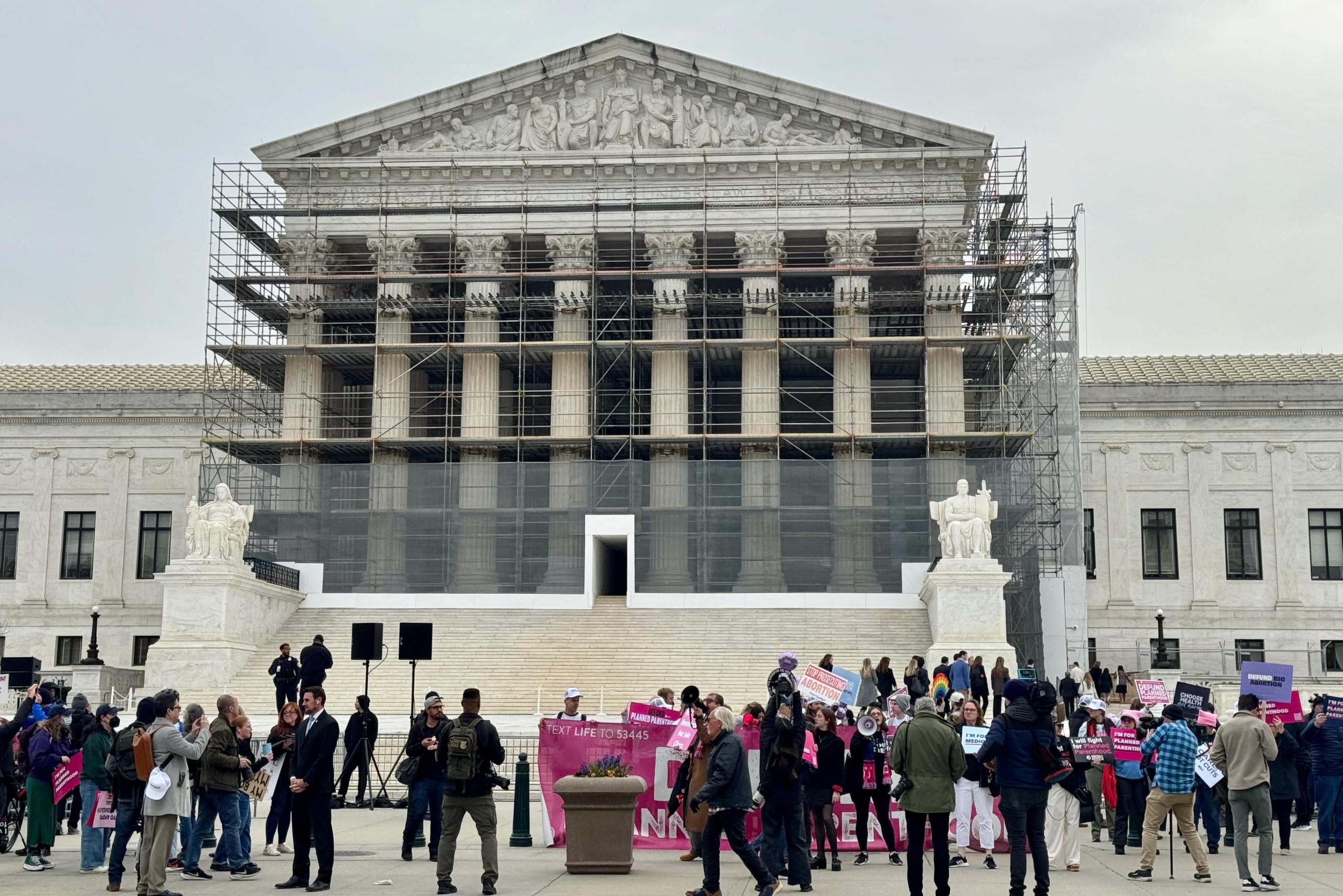Court tosses out lower-court ruling against FDA in flavored vape dispute


The Supreme Court on Wednesday largely upheld the Food and Drug Administrations denials of two companies applications to sell flavored liquids for use in e-cigarettes. In a unanimous ruling, the justices threw out a ruling by the conservative U.S. Court of Appeals for the 5th Circuit holding that the FDA had improperly pulled a regulatory switcheroo when it gave the companies instructions that they followed but then ignored those instructions and denied authorization while imposing new requirements. In a 46-page ruling by Justice Samuel Alito, the court sent the case back to the court of appeals so that it could take another look at one aspect of the dispute specifically, whether it made a difference that the FDA had changed its position and failed to consider marketing plans that the companies had submitted as part of their applications.
E-cigarettes, also known as vapes, are battery-powered devices that heat a liquid, which in turn produce an aerosol that the user inhales. E-cigarettes normally contain nicotine, the addictive ingredient released by the burning of a traditional cigarette, but without some of the other chemicals that are released when tobacco is burned.
A 2009 law, the Family Smoking Prevention and Tobacco Control Act, requires manufacturers to get permission from the FDA before putting a new tobacco product on the market. The law requires the applicant to show, among other things, that marketing the product would be appropriate for the protection of the public health a standard that the FDA applies by considering both the likelihood that people who currently use tobacco products will quit and the possibility that people who do not use tobacco products will start using them.
In 2021, the FDA denied applications from Triton Distribution and Vapetasia to sell flavored liquids with names like Rainbow Road, Crme Brulee, and Jimmy the Juice Peachy Strawberry for use in e-cigarettes. Young people are more likely to use e-cigarettes when these kinds of flavored liquids are available, the FDA reasoned, and it had not found any evidence that flavored liquids would benefit adult smokers.
The full U.S. Court of Appeals for the 5th Circuit set aside the FDAs denial of the two companies applications. The companies had followed specific instructions that the FDA had provided, the court of appeals reasoned, but then the FDA ignored those instructions and instead imposed without acknowledging it new requirements.
On Wednesday, the Supreme Court unanimously rejected the 5th Circuits ruling. Alito explained that under the federal law governing administrative agencies, courts reviewing an agencys actions can only set them aside if they are arbitrary and capricious that is, if they lack a rational basis or are unreasonable. Courts, Alito stressed, must exercise appropriate deference in such cases and cannot substitute their own judgment for that of the agency.
At its core, Alito continued, the companies argument boils down to the idea that the FDA told them in guidance documents that it would do one thing and then turned around and did something different when it reviewed their applications. But federal administrative law, Alito emphasized, allows agencies to change their positions as long as they provide a reasoned explanation for the change, display awareness that they are changing position, and consider serious reliance interests.
Alito acknowledged that in the lead-up to its consideration of the companies applications to market their products, the FDA issued voluminous and discursive documents that paint a picture of an agency that was feeling its way toward a final stance and was unable or unwilling to say in clear and specific terms precisely what the companies would have to provide. But for three of the issues about which the companies complain the FDAs alleged failure to provide clear notice about the kind of scientific evidence that they would have to provide, the FDAs requirement that manufacturers compare the health effects of their non-tobacco-flavored products with those of tobacco-flavored products, and the FDAs alleged shift in enforcement priorities away from cartridge-based products to include other kinds of e-cigarettes the justices concluded that the FDAs orders denying the companies applications were sufficiently consistent with the guidance that it had provided that it had not violated federal administrative law.
The FDA did not challenge the holding by the court of appeals that it had changed its position on the significance of submitting marketing plans that outlined a manufacturers proposals and restrictions to keep e-cigarettes out of the hands of young people. The FDA had told manufacturers that the submission of such plans would be critical but then did not consider them, the companies complained.
The FDA argued in the Supreme Court that its failure to consider the marketing plans would not have made a difference for these companies, because it had later denied applications by other manufacturers with very similar marketing plans that it had reviewed. The justices sent the case back to the court of appeals for it to take another look and determine whether the case should return to the FDA or instead whether it should consider the argument itself.
Justice Sonia Sotomayor wrote a brief concurring opinion to clarify that, in her view, the FDA was not necessarily feeling its way toward a final stance, as Alito suggested. Instead, she said, the record shows the agency reasonably gave manufacturers some flexibility as to the forms of evidence that would suffice for premarket approval of their products, while hewing to (and never suggesting it would stray from) its statutory duty to approve only those products that would be appropriate for the protection of the public health.
This article was originally published at Howe on the Court.
Posted in Merits Cases
Cases: Food and Drug Administration v. Wages and White Lion Investments, LLC
